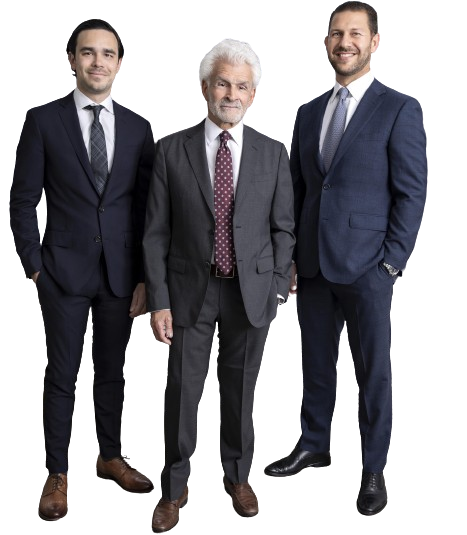
Losing a loved one in a workplace accident is devastating. Beyond the grief, there are often unanswered questions:
- Was this preventable?
- Who is responsible?
- Can we hold them accountable?
It’s normal to ask these questions, and if you’ve suffered the loss of a loved one, know that you can find justice. In New York, if someone’s death was caused by another party’s negligence or wrongful conduct, surviving family members may have the right to bring a wrongful death claim. This applies even when the fatal accident happened on the job.
Find out how you can get justice for you and your family.
What Legally Constitutes Wrongful Death in New York?
Do you have a wrongful death case? Under New York law, a wrongful death occurs when a death is caused by the wrongful act, neglect, or default of another person or entity. That act would also have allowed the victim to sue for personal injury if they had survived.
In the context of workplace accidents, wrongful death claims can arise from:
- Unsafe working conditions
- Failure to follow safety regulations
- Defective machinery or equipment
- Negligent maintenance
- Inadequate training or supervision
It’s important to understand that wrongful death is a civil action that is separate from any criminal investigation or workers’ compensation claim. If any of the above conditions apply to your situation, contact a wrongful death lawyer to talk about your case.
Have You Been Injured In An Accident? Contact Morelli Law
877-751-9800Workplaces in New York Have Legal Obligations
Employers in New York have a legal duty to provide a reasonably safe work environment. This duty includes:
- Complying with OSHA (Occupational Safety and Health Administration) regulations
- Providing proper safety equipment
- Maintaining equipment and machinery for safe operation
- Training employees on safe work practices
- Taking prompt action to correct known hazards
When an employer fails to meet these obligations and that failure leads to a fatal accident, they may be liable. However, because of New York’s workers’ compensation laws, there are limits on suing an employer directly, which is why third-party liability is often a factor in wrongful death workplace cases.
Who Can Sue for Wrongful Death in New York?
In New York, a wrongful death claim must be filed by the personal representative of the deceased person’s estate. This representative is often named in the will, but if there is no will, the court will appoint someone. This is usually a close family member.
While the personal representative is the one who files the claim, the damages recovered benefit the surviving family members, which may include:
- A spouse
- Children
- Parents
- Other dependents
Statute of Limitations for Wrongful Death Claims
New York imposes a strict two-year statute of limitations for wrongful death lawsuits. This means the personal representative has two years from the date of death to file the claim. There are very few exceptions to this rule, and missing the deadline can permanently bar your case, which is why it’s important to speak with a lawyer as soon as possible after a fatal workplace accident.
Contact our personal injury lawyers today
877-751-9800Which Third Parties Can Be Liable?
While workers’ compensation generally prevents lawsuits against an employer, it does not protect third parties who may have caused or contributed to the accident. Examples include:
- Manufacturers of defective equipment: if faulty machinery, tools, or safety gear caused the fatal injury.
- Contractors or subcontractors: on multi-employer worksites, another company’s negligence may be to blame.
- Property owners: if unsafe premises conditions contributed to the accident.
- Maintenance companies: if they failed to properly service or repair equipment.
- Drivers or transportation companies: in cases involving work-related vehicle accidents.
In many wrongful death workplace cases, identifying liable third parties is the key to securing compensation that goes beyond workers’ comp benefits.
What Damages Can Be Recovered?
In a wrongful death lawsuit, the damages awarded are meant to compensate surviving family members for the financial losses caused by their loved one’s death. These may include:
- Funeral and burial expenses
- Medical expenses related to the final injury or illness
- Lost income and benefits the deceased would have earned
- Loss of parental guidance and support for surviving children
New York currently allows recovery for the pain and suffering of surviving family members, but calculating it is complicated. Pain and suffering is a legal term, and it must be proven in court. This is different than the “grief” that can be caused by the loss of a loved one.
Your Legal Representation Matters
At Morelli Law Firm, we have a reputation for taking on powerful corporations, insurance companies, and institutions and winning. Our attorneys have more than 100 years of combined experience and a track record of recovering billions of dollars for our clients, including precedent-setting verdicts in high-stakes cases.
Wrongful death cases involving workplace accidents are complex. They may require:
- Investigating OSHA and safety regulation compliance
- Reviewing accident reports, maintenance records, and safety logs
- Working with engineers, safety experts, and medical professionals
- Navigating the overlap between workers’ compensation and civil law
- Going up against large corporations, insurance companies, and their legal teams
We understand the pain and upheaval that follows a wrongful death. When you work with us, you’re gaining a compassionate team that will fight tirelessly for accountability, justice, and the financial security your family needs to move forward. We have the resources, skills, and determination to stand toe-to-toe with the biggest opponents. We never forget that behind every case file is a family that’s been forever changed.
If your loved one died in a workplace accident, you deserve answers. You deserve justice. And we’re here to help you get it. Contact us today for a free case evaluation.
Call or text 877-751-9800 or complete a Free Case Evaluation form



